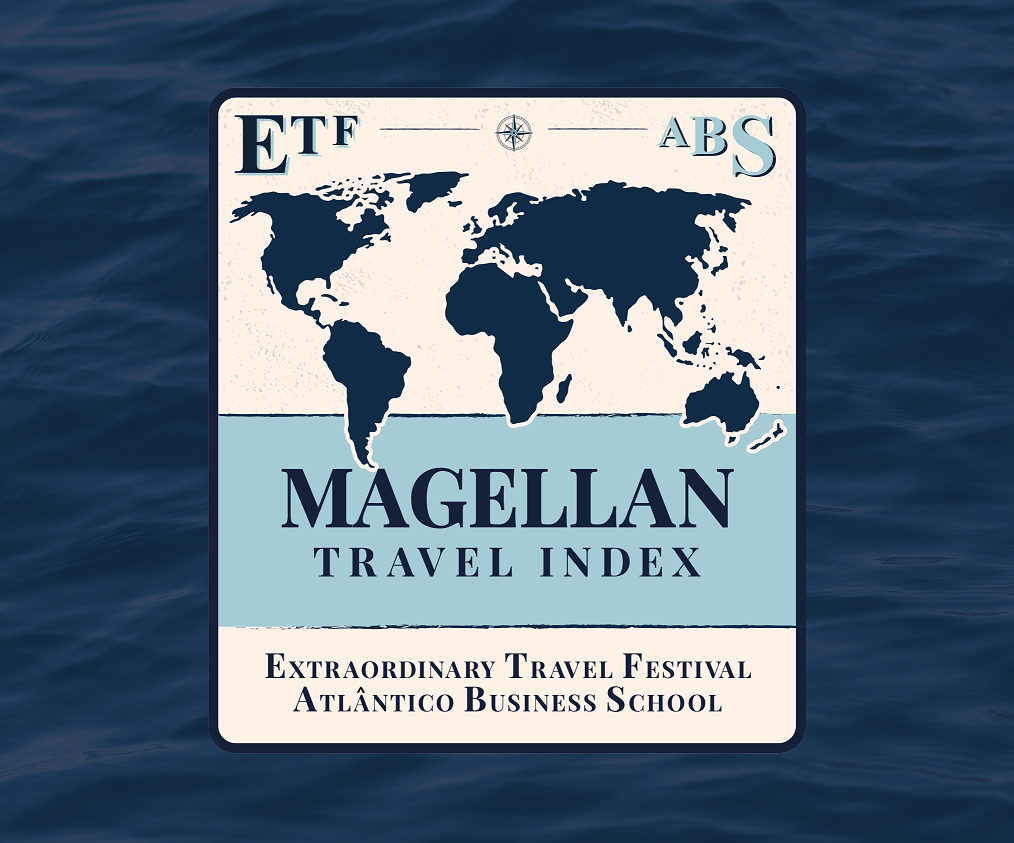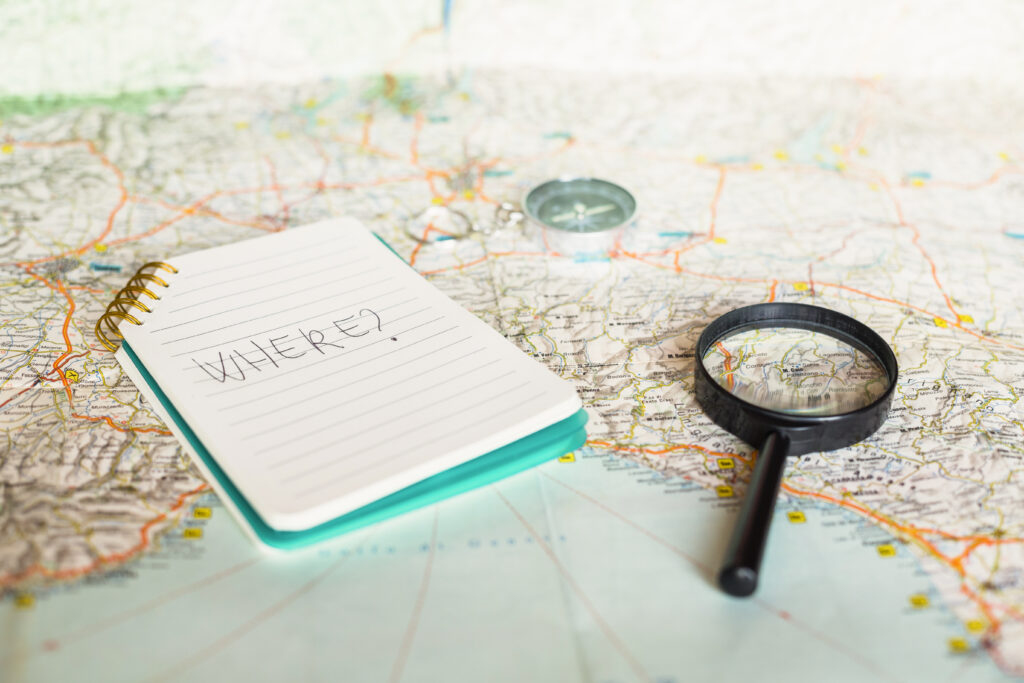ETF/ABS
Magellan Travel Index
A new index that tracks the achievements of global travelers.

ETF/ABS
A new index that tracks the achievements of global travelers.

The Atlântico Business School (ABS), a university in Porto, Portugal, built a new index that tracks the achievements of global travelers, and has partnered with the Extraordinary Travel Festival (ETF) to launch this index. Their collaboration aims to make the ETF/ABS Magellan Travel Index (MTI) a leading benchmark for travelers worldwide.
The index is named after the famous Portuguese explorer Ferdinand Magellan (Fernão de Magalhães in Portuguese), who led the first circumnavigation of the globe from 1519 to 1522, at the service of the kings of Spain. The name was chosen to:
The ETF/ABS Magellan Travel Index is based on two main factors, each given equal weight: Quality of Travel (QL) and Quantity of Travel (QT).
Quantity of Travel (QT) is determined by how many regions a traveler has explored, based in the number of countries in the UN and the number of countries/territories in the world according to ISO and the regions of the three most important travel clubs:
Quality of Travel (QL) is evaluated using four key criterions:
The ETF/ABS Magellan Travel Index will be updated and published annually on the ETF website and other partner platforms.
MAIN OBJECTIVES
The index aims to serve as a guideline for assessing the quality of travel for those who wish to explore the largest number of regions on the planet. It incorporates criterion that measure the number of regions visited (in the QT subcomponent of the MTI) and criterion that evaluate the quality of those visits (in the QL subcomponent of the MTI).
The index value reflects the traveler’s level: the higher the value, the more well-traveled they can consider themselves. Thus, using the index, a traveler can plan their trips considering how each visit affects their index score.
As a secondary objective, the index also allows the creation of a ranking among travelers, which is always a motivating and challenging factor for most extreme travelers. Given that travel is more prevalent today than ever, in the future, once its limitations are overcome, this ranking may be considered the definitive ranking of the greatest travelers of all time.

In a generic way, it can be said that MTI has 4 very specific characteristics:
It considers both the quantity of regions visited and the quality of the visits made, giving equal weight to each of the components.
To measure the number of regions visited, it includes criterion from the 3 most important travel clubs (MTP, NomadMania and TCC).
Attaches the same importance to those clubs, giving equal weight to each one.
To assess the quality of travel, it uses objective criterion or those defined by prestigious supranational entities in the field.
To conclude, we would like to make our own the words of the mythical Spanish traveler Jorge Sanchez, on the website where he presents his own ranking;
“This ranking, as well as those in travel clubs such as TCC, MTP, or NomadMania, should not be taken too seriously. Travel is just an instrument to learn; dromomania is a pathology, it is insane; there are more important things to do in life than traveling, but some people are so poor than in their life they only have travels. Nevertheless, I still think that the best traveler is the one who, thanks to his conscious travels, has acquired more knowledge of humanities that has helped him to elevate his being, to develop from featherless biped to complete man”.
ETF and ABS extend their thanks to the NomadMania website (especially Harry Mitsidis and Orest Zub), MTP website (especially Charles Veley and Luis Amaral) and ABS team (especially Pedro Bruno, Pedro Antunes and Débora Luz) for all the support on the creation of the “ETF/ABS Magellan Travel Index”.